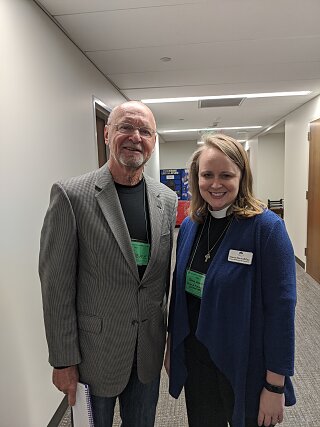Advocacy
Advocacy alert:
Check out our Letter Writing Advocacy Training Video here:
Speak Truth to Power
A sustainable earth requires not only that we learn all we can and practice good stewardship at home, but also that we speak up to those with power to change systems—federal, state, and local government; governing boards and agencies at all levels; and corporations and businesses.
Our voice joins the volume of others who are also advocating until the roar of the people is loud and clear. Advocacy sets the stage for voting and change.
Advocacy takes many forms, including something as simple as telling a clerk you don’t want any plastic bagging because you care about the effects of single-use plastics on the environment. Talking about the issues is one of the most important ways to advocate.
Signing petitions, sending emails with content drafted by knowledgeable organizations, making phone calls using a suggested script from committed advocacy groups all count. They may only be a tally mark at the recipient’s end, but those add up.
When you personalize, your impact is greater. Using your own words, telling your own story, identifying why the change is important to you move your advocacy beyond the tally. You’ve helped the recipient see the human impact of the issue. Consequently, you’ve made an impact too!
View the set of slides below to learn more about how to make an effective advocacy contact. Whether you handwrite or type a letter, send an email, or make a phone call, the important thing is to make the contact. God does not demand that we be successful; God calls us to be faithful. Slides: SpeakUpCampaignforWEUMCwebsite.pdf
How to Advocate with Your Elected Officials
The Creation Care State Advocacy Working group hosted a successful webinar in May on the whys and how-to’s of advocacy particularly during this Covid-19 context. The recorded webinar can be viewed here. Contact State Advocacy Working Group Facilitator, Rev. Paul Slentz at pslentz53@gmail.com for more information.
Talking to your elected official is an important part of advocacy. It's important to know who your elected officials are and where they stand on issues like the environment. Take a moment to learn who your elected officials are and get their contact information so you can prepare to send them your thoughts on why you as a person of faith care about the earth.
Local Officials:
Metro Nashville City Council Member
Mayor John Cooper - Phone: 615-862-6000, Email: mayor@nashville.gov
Tennessee State Officials
Governor Bill Lee - You can contact Bill Lee using this form (https://www.tn.gov/governor/contact-us.html) or by calling his office and leaving a message with his staff (615) 741-2001.
National Level Officials
US Senate
Haggerty, Bill- (R - TN)
Russell Senate Office Building, Suites SR-B11, Washington DC 20510
(202) 224-4944
Contact: https://www.hagerty.senate.gov/
Blackburn, Marsha - (R - TN)
357 Dirksen Senate Office Building Washington DC 20510
(202) 224-3344
Contact: www.blackburn.senate.gov/email-me
President Joseph R. Biden
From the White House: https://www.whitehouse.gov/contact/ Using this form is the fastest way to get your message to President Biden.
- If you write a letter, please consider typing it on an 8 1/2 by 11 inch sheet of paper. If you hand-write your letter, please consider using pen and writing as neatly as possible.
- Please include your return address on your letter as well as your envelope. If you have an email address, please consider including that as well.
- And finally, be sure to include the full address of the White House to make sure your message gets to us as quickly and directly as possible:
The White House
1600 Pennsylvania Avenue NW
Washington, DC 20500
